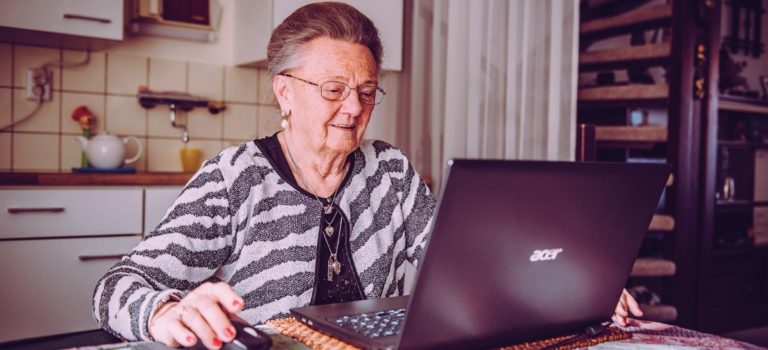
Uncategorized

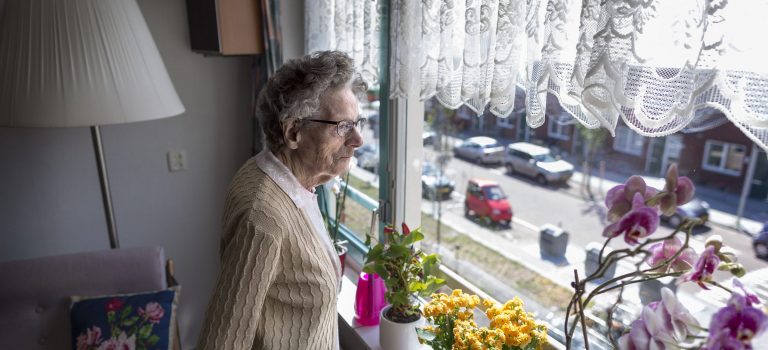
WHO: prioritize the needs of older people in response to Covid-19
In an open letter published in the British Medical Journal on 23 March 2020, an international coalition of academic institutions and civil society organizations urges the World Health Organization (WHO) and its member states to prioritize the needs of older people in its response to the Covid-19 pandemic, given that this age group accounts for the large majority of severe cases and of casualties. The authors demand expert guidance for health workers about how to work with frail older people, for older health workers, and for older people themselves and their families.
The 142 signatories include Michael Hodin, CEO of the Global Coalition on Aging, Ken Bluestone, Head of Policy and Influencing at Age International, Dr Glenda Gray, President and CEO South African Medical Research Council, Professor Jean-Pierre Michel, European Interdisciplinary Council on Aging, Dr Cesar Victora, International Center for Equity in Health, and representatives of the International Longevity Centre (ILC) Global Alliance from the USA, UK, South Africa, Brazil, Romania, Nigeria, Singapore, Australia, India, Japan, and Argentina. Professor Tineke Abma signed the open letter on behalf of Leyden Academy on Vitality and Ageing and ILC The Netherlands.
We sincerely hope this collective action will lead to adjustments in the WHO policy and guidelines, and encourage awareness and a broader discussion on the impact of the Covid-19 pandemic on the most vulnerable groups in our society.
Please read the open letter in BMJ here.
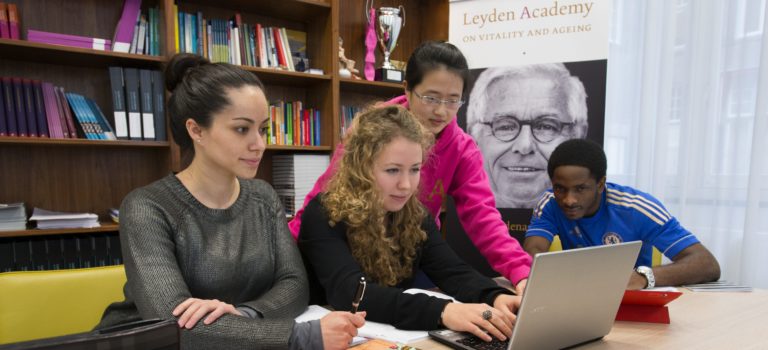
Honours Class 2020: Innovating Health and Well-being through Entrepreneurship
From March 19 to June 25, 2020, Leyden Academy, Leiden University and PLNT Leiden will provide the Honors Class Innovating Health and Well-being through Entrepreneurship. This Honors Class is part of Master Honors Classes, special extracurricular courses for talented master students who work in multidisciplinary teams on innovative solutions for health and well-being challenges.
Given this special time we are in, these challenges are related to the corona crisis. In the next ten weeks, fifty bachelor and master students of Leiden University will engage in a virtual learning experience to tackle complex issues such as:
- How can we keep in touch with elderly people living independently who do not have digital resources?
- How do we explain the measures to children, young people, people who are illiterate or who have intellectual disabilities?
- How can we keep care providers safe and healthy, while they care for vulnerable people?
- How can we deal with loneliness among students, youth, and seniors today?
- How should we deal with social distancing in the last phase of a person’s life?
The curriculum starts with defining and analyzing the problem, followed by design thinking processes (creativity and innovation), better understanding of the end user and testing with MVPs (minimum viable product or service), and testing on viability, through business modeling and value proposition. We hope that the innovations will ultimately make a positive contribution to the issues we face in this unreal time.
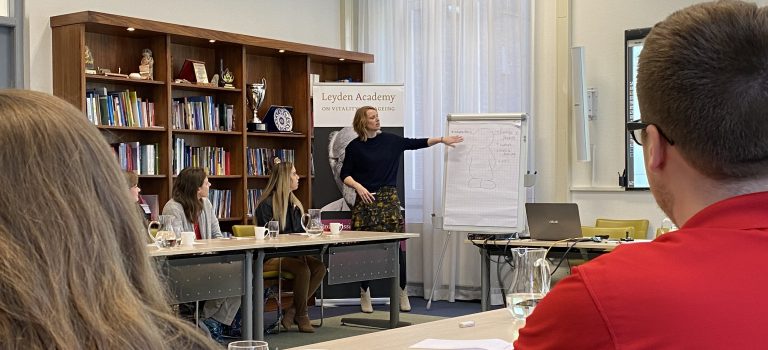
Nursing students experiencing the Enjoying life approach
Today, we welcomed sixteen nursing students and two professors from Saginaw Valley State University in Michigan. The group is travelling in the Netherlands this week to explore our health care system and compare it to the system in the U.S., incorporating both the theoretical and fieldwork components. While in The Netherlands, the students will be visiting hospitals, nursing homes, public health agencies, and knowledge institutes such as Leyden Academy on Vitality and Ageing.
Senior researcher Josanne Huijg first introduced the students to the work of Leyden Academy and discussed the Enjoying life project in particular, an experiment conducted by our institute to make the well-being of residents of nursing homes the focal point of providing and evaluating care. What are the implications of this approach for older people, their significant others, and nursing home staff? And how can the quality of this ‘narrative care’ be justified to external parties?
The students were very interested in this person-centred approach, and had many questions. They were also challenged to think about and write down three things that are important in their own lives. Almost everyone mentioned their family and friends. According to Josanne, research confirms that relationships are most important for people’s well-being. Other examples written down by the students were nature, faith, music, my dogs, and “a cup of coffee in the morning”.
The next step was to exchange your card with your neighbor and delete one random thing. How does this feel? “That’s sad,” one of the students said. We tried to convey how it feels when you move into a nursing home, and you have to leave precious things behind: like living with your spouse, your pet, or certain hobbies or routines you cherish. This is the main objective of our research in long-term care: helping residents of nursing homes to live their lives the way they want to, and to be the person they want to be.
Afterwards, postgraduate researcher Paul van de Vijver presented Leyden Academy’s vision and research on ageing in vitality, and helped the students to experience feeling older by applying the ‘old age suit’.

New Master Honours Class ‘Innovating Health and Well-being through Entrepreneurship’
In March, the Honours Academy of Leiden University will launch the new Master Honours Class Innovating Health and Well-being through Entrepreneurship (5 EC). Ambitious students with a curious mind will have the opportunity to work on an innovation for the healthcare sector.
In this Master Honours Class, from 19 March until 25 June 2020, students will explore innovations for the healthcare and welfare sector, alongside their regular Master’s degree programmes at Leiden University, “For example, how can people with a low level of literacy learn how to stay healthy’, explains coordinator Lex van Delden of Leyden Academy. Another potential assignment might ask the students to think about the design of a new nursing home, “which puts enjoyment of life rather than care front and centre,” says Van Delden.
The course is all about bringing students closer to the end users of care and welfare, says Van Delden. “In addition to discussing the theory and the students engaging with experts, those who receive care play a vital role in getting to the heart of the problem.” In groups of four, supported by a coach, the students prepare a presentation of their plan. “The main objective is to demonstrate that the plan is also marketable, in other words that it’s feasible and affordable.”
Motivated Master’s students can apply for the new course from today until 16 February. Master Honours Classes are small-scale, extra-curricular, interdisciplinary courses that address both theory and practice. Participants are selected based on motivation, study results and academic background.
For more information on the programme, course load, and registration, please visit the website of the Master Honours Class Innovating Health and Well-being through Entrepreneurship.
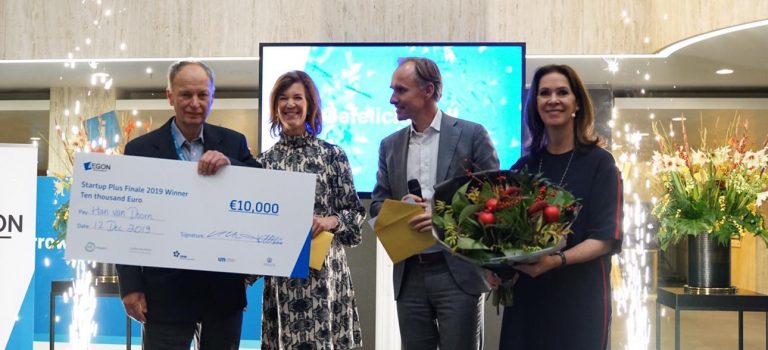
START-UP PLUS: not only the youth has the future
John Pemberton was 55-years-old when he launched Coca Cola. Colonel Sanders was 65 when he began fast food chain KFC. Their success stands not on its one: research shows that people over fifty who start their own business, are two to three times more successful than people in their thirties. Yet virtually all start-up programs aim at young entrepreneurs.
About Start-Up Plus
Leyden Academy and Aegon therefore developed Start-Up Plus, a free Dutch program for people over fifty who want to set up their own business. The program started with a the kick-off meeting on October 15, 2019. Followed by eight intensive weeks of online learning and coaching on topics such as customer needs, revenue models, marketing and prototyping. On December 12, 2019, about fifty participants pitched their ideas to an expert jury. The most promising start-up was awarded a cash prize of 10.000 euros and further coaching for the development of their company.
“People over fifty burst with ideas and with their experience and network, they have a greater chance of success.” – Project leader Dr. Jolanda Lindenberg
And the winner is ……
Both the jury and the audience selected the idea of 82-year-old Han van Doorn as the winner. With his “Are You Okay Today” app, the behaviour of the older individual is observed by patterns in their daily power usage. In case of changes in the usual routine, an automatic call is made to the resident, and if there is no response the caregiver is contacted. This gives both the resident and the caregiver some peace of mind. Han speaks from personal experience: “My son wants to keep an eye on his old father. But I do not want an alarm button around my neck or cameras and sensors in my house. This self-learning system reaches out when necessary, without being too intrusive.” Han has developed the app together with his son, has tested it in practice and is already in contact with interested parties such as a health insurer and energy provider. The jury sees his start-up as promising and sees great potential for Han’s innovative app: there are over 4 million informal caregivers in the Netherlands.
Never too old to undertake
Another great initiative is that of 52-year-old Klaartje Gisolf. Her ‘Upcycle Factory’ offers a workplace where waste materials are converted to sustainable products. “My target market is 65- to 99-year-olds, people who are often seen as vulnerable. I want to show them what they are still capable off.”
Start-Up Plus was developed by Leyden Academy and Aegon, and made possible by EIT Health. Many thanks to partners Instituto Pedro Nunes, Medical University of Lodz and University of Naples Federico II.
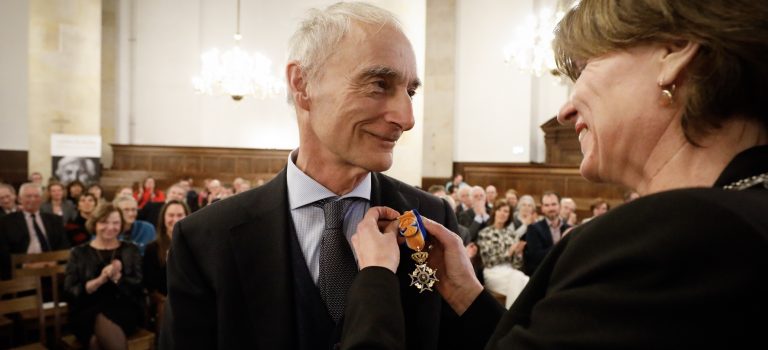
Royal decoration for Joris Slaets
This afternoon, during a symposium in the Mare church in Leiden celebrating his retirement, director of Leyden Academy Professor Joris Slaets received a royal decoration. He was awarded the grade of Officer in the Order of Orange-Nassau by Marleen Damen, deputy mayor of Leiden. This honour is only awarded on the basis of special, personal merits for society.
In his clinical and academic career as a Professor of Geriatric Medicine at the University of Groningen (since 1998) and as executive director of knowledge institute Leyden Academy on Vitality and Ageing (since 2015), Professor Slaets was always committed to making positive changes in healthcare for the frail elderly. He aimed to shift the focus from disease and symptoms, to the personal wishes and desires of older people. Slaets’ conviction is that radical medical interventions should be kept to a minimum in the final phase of life. With research and field experiments during his years at Leyden Academy, Slaets and his team contributed to integrating enjoying life and compassionate long-term care into current practice where strict sytems, protocols and normative frameworks are still dominant.
As of 1 December 2019, Slaets will retire as director of Leyden Acadamy. His successor is Tineke Abma, professor of Participation & Diversity at Amsterdam UMC.
If you have any questions, please contact Niels Bartels by phone: +31 (0)6 34614817 or by email.
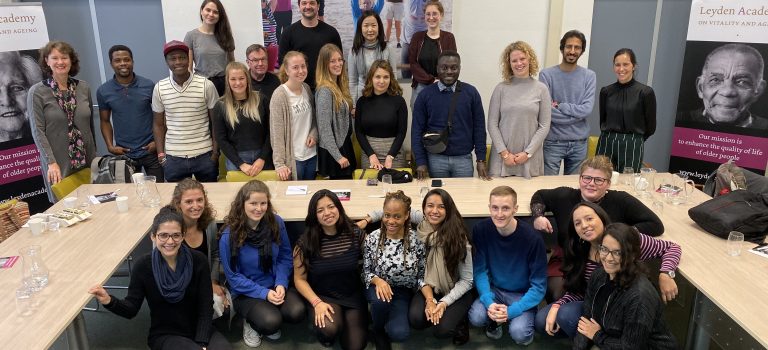
Future non profit managers visit Leyden Academy
On 24 October 2019, we welcomed a group of students from the Master programme Management in Non Profit organisations at the University of Applied Sciences in Osnabrück, Germany. The 24 students had very different backgrounds, both in their countries of origin as in the areas of non profit management they are interested in. During their stay in The Netherlands, they visited various non profit organisations ranging from Doctors Without Borders in Amsterdam, the Organisation for the Prohibition of Chemical Weapons (OPWC) in The Hague to Leyden Academy on Vitality and Ageing.
The master students expressed keen interest in the research of Leyden Academy. Director Marieke van der Waal gave a general introduction of our knowledge institute and areas of expertise, and soon various specific topics were addressed, such as loneliness and the images of older people. Marieke challenged the students to guess what percentage of the Dutch seniors resides in a nursing home. They were surprised to learn that their estimate, “about twenty per cent”, was way off as in fact about 96 per cent of the Dutch older people still live in their own homes independently.
After the break, Jolanda Lindenberg provided the students with a deeper insight into the images of ageing. How we can tackle stereotypes of older people and what are the conditions for successful intergenerational projects? Jolanda mentioned various housing projects and other initiatives that aim to connect the young and old. There are success stories, but it is not easy to facilitate contacts with the depth and quality necessary to make a positive change in how generations view each other.
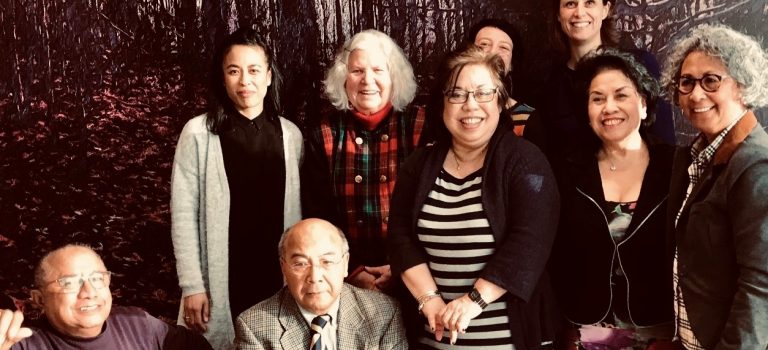
“The older migrant does not exist”
Leiden, The Netherlands – What are the views of older adults with a migration background on successful ageing in the Netherlands? There are major differences between and within older migrant groups and these differences cannot simply be explained with their ethnic background, researchers of Leyden Academy on Vitality and Ageing conclude based on qualitative research. For this reason, a person centered, culturally sensitive approach is recommended. The findings are published in the article ‘The Experience of Aging and Perceptions of “Aging Well” Among Older Migrants in the Netherlands’ in this month’s special edition ‘Immigration and Aging’ of the scientific journal The Gerontologist.
Eight focus-group discussions
Scientific research on older migrants often focuses on topics like morbidity and health care (under)use. Older migrants’ overall well-being is largely overlooked, the authors concluded last year in a narrative literature review (in Dutch). How do older migrants experience ageing in the Netherlands? To answer this question, eight focus-group discussions were conducted in early 2018 with the six largest migrant groups in the Netherlands, namely Indo-Dutch and Moluccans, and migrants with European, Surinamese, Antillean, Turkish, and Moroccan background. For the last two groups, we organised separate group discussions for men and women. The participants were relatively healthy older adults living independently, ranging in age from 54 to 88 years old. The discussions were open but the following themes were addressed in all focus groups: becoming older, daily activities, social contacts, living environment, and own initiative and responsibility.
High levels of life satisfaction
The study findings show that in general, older migrants experience ageing more positively than is commonly assumed in the (scientific) literature. Overall, the participants revealed rather high levels of life satisfaction, especially when it comes to their living environment – both in its physical and social manifestation – and social services, such as the quality of health care. Two older Moroccan gentlemen explained that in the Netherlands, “the doctor is better”, “it is safe” and “it is a free country where you can make your own choices”. Key aspects of successful ageing throughout all groups include remaining healthy, independent, and engaged. Nevertheless, some negative aspects of ageing were also mentioned, with differences between groups. The Turkish older adults were more than others concerned with future care arrangements and the role of the government in this regard. Surinamese participants, Indo-Dutch, and Moluccans shared to be highly concerned with their slowly decaying health.
Researcher Nina Conkova PhD: “The predominantly negative image of older adults with a migration background is likely affected by the problematisation of the first generation non-Western migrants. It is time to move beyond categorisations and generalisations and acknowledge the diversity between and within ethnic groups. Let us recognise and make better use of the wisdom and talents of these people.”
Towards a culturally sensitive approach
The research shows that there are major differences in how ageing is experienced between and within groups of older migrants, and that these differences cannot simply be explained with their ethnic background. By generalising problems and their possible solutions, we fail to recognise this diversity, Conkova argues: “The stereotypical ‘older adult’ does not exist, and neither does the ‘older migrant’. Similarly to older adults without a migration background, older migrants differ greatly in terms of education, income level, knowledge of the Dutch system and policy. Specific to older migrants are their personal migration history and varying levels of Dutch language proficiency.”
Given these findings and the increasing heterogeneity of older adults in general, it is important to move from measuring groups by the same standards to working towards a person-centered, culturally sensitive approach. Conkova: “This approach leaves space for the wishes and desires of each individual and for an individual experience of one’s (migration) background, without assuming automatically that this determines one’s identity.”
The article ‘The Experience of Aging and Perceptions of “Aging Well” Among Older Migrants in the Netherlands’ by Nina Conkova and Jolanda Lindenberg was published online on 30 September 2019 and will appear in the special edition ‘Immigration and Aging’ of scientific journal The Gerontologist: https://academic.oup.com/gerontologist/advance-article/doi/10.1093/geront/gnz125/5576057?guestAccessKey=6b9c53b7-84a0-4b2f-a122-cb2b0c7bbff5
For more information, please contact Niels Bartels (communications manager) by phone +31 (0)71 524 0960 or by email.
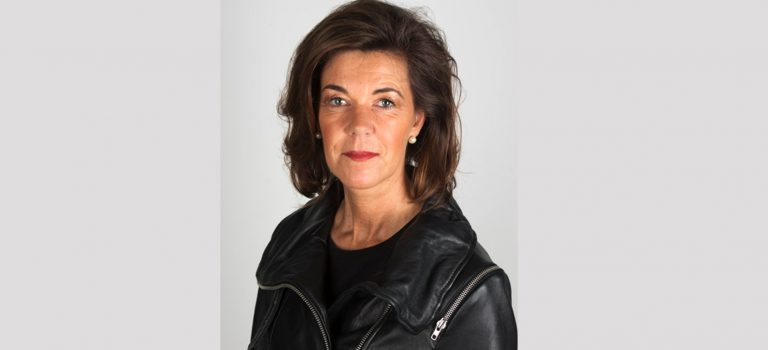
Tineke Abma new director of Leyden Academy
Leiden, The Netherlands, 11 September 2019 – Tineke Abma, professor of Participation & Diversity at Amsterdam UMC will become director of the knowledge institute Leyden Academy of Vitality and Ageing as of 1 December 2019. She will succeed Professor Joris Slaets, who is retiring on the same date.
For over twenty-five years, Tineke Abma has been researching themes closely related to ageing, such as patient and citizen participation, long-term care, ethics and diversity. She has been working at Amsterdam UMC (formerly VUmc) since 2009; first as special professor of Client Participation in Elderly Care and later as full-time professor of Participation & Diversity. Abma is looking forward to working at Leyden Academy: “In striving to improve the quality of life of older people, Leyden Academy covers the entire spectrum from vitality to elderly care and images of ageing. The perspective of the older individual is always the starting point, with respect for every person’s uniqueness. This is also what drives me.” Abma will remain a professor in Amsterdam for one day a week.
Joris Slaets has been director of Leyden Academy since 1 January 2015. He remains connected to the institute as a researcher in the Enjoying life project. Slaets is pleased with his successor: “I see many similarities in our scientific interests and personal motivations. Valuing the differences between people, taking their point of view seriously and, if necessary, being prepared to challenge the status quo. We also share the conviction that quality lies in personal narratives and experiences. I wish Tineke all the best.”
Dr. Wim van den Goorbergh, Chairman of Leyden Academy’s Supervisory Board: “In the past five years, Joris Slaets has made an important contribution to the further development of Leyden Academy, through ambitious studies and projects focused on the well-being of older people in nursing home care. We thank Joris for his vision and leadership. We are convinced that Tineke Abma will add her own accents to Leyden Academy, based on her rich experience in participative action research in care and well-being.”
For more information, please contact Niels Bartels (communications manager) by phone: +31 (0)71 524 0960 or by email.